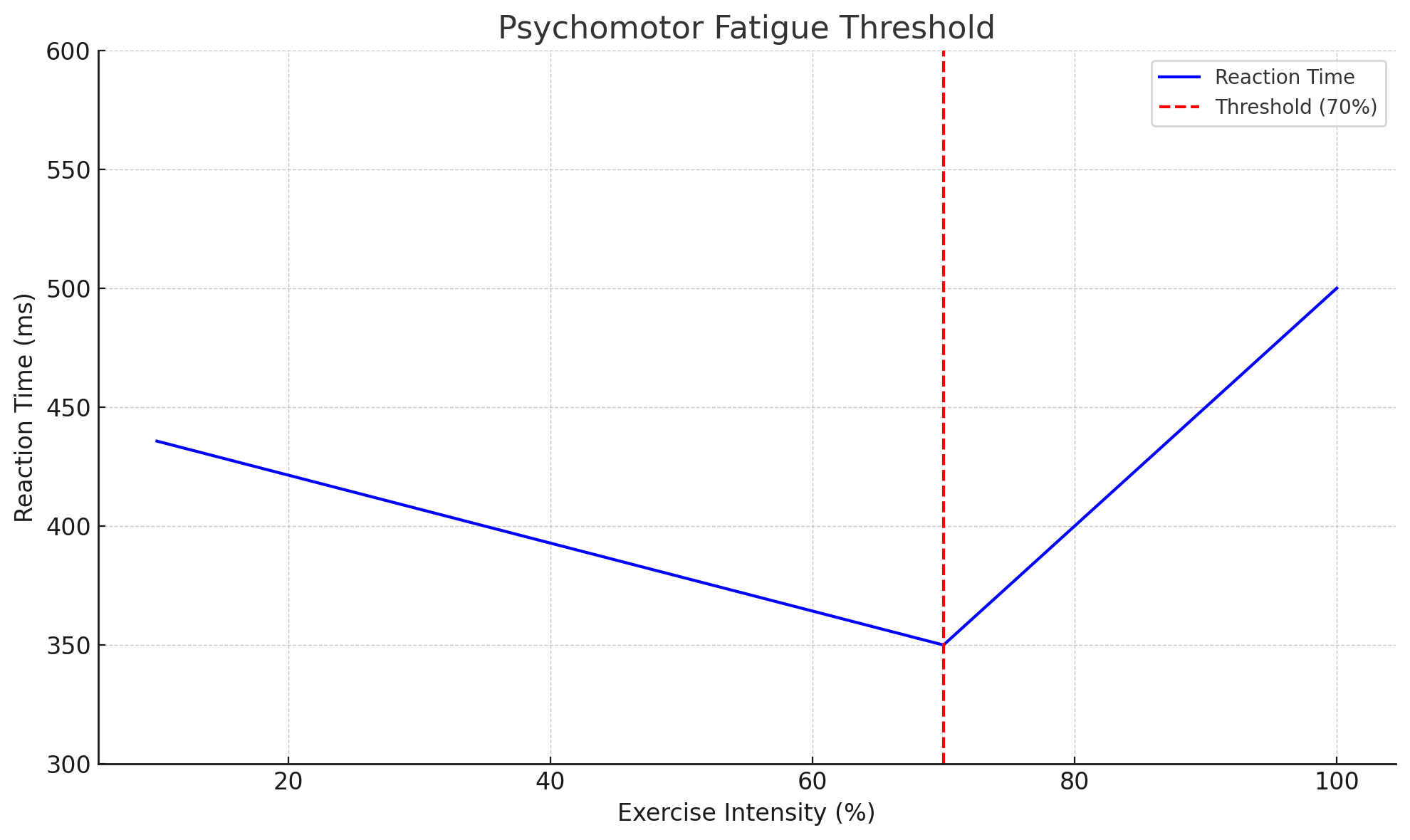The Athlete's Cognitive Breaking Point
We're diving deep into a concept that's crucial yet often overlooked in sports training: the athlete's cognitive breaking point.

We're diving deep into a concept that's crucial yet often overlooked in sports training: the athlete's cognitive breaking point. But what exactly is this breaking point, and why does it matter? In essence, it's the moment an athlete's cognitive performance starts to decline under pressure or fatigue, affecting their decision-making, reaction time, and ultimately, their overall performance.
Understanding The Cognitive Breaking Point
Before we can optimize, we must understand. The cognitive breaking point refers to the threshold at which an athlete's cognitive performance begins to suffer. It's that critical moment when the clarity of decision-making, the swiftness of reaction, and the accuracy of movements start to wane. Recognizing these points is not about finding weaknesses but about understanding an athlete's current limits to strategically push beyond them, enhancing resilience, stamina, and overall performance. This understanding is paramount, as it influences training schedules, recovery times, and competitive strategies, ensuring athletes are not just physically but also mentally prepared for the demands of their sport.
Let's move forward to the first method of identifying this crucial point: monitoring minute-by-minute cognitive data.
Method 1: Monitoring Minute-by-Minute Cognitive Data
To uncover an athlete's cognitive breaking point, Soma Technologies offers a precision tool: minute-on-minute mode. This tool enables tracking of all cognitive and physiological metrics, including reaction time, speed, variation, accuracy, BPM (beats per minute), rMSSD (the root mean square of successive differences), and SDNN (standard deviation of all NN intervals). These metrics provide a comprehensive view of an athlete's cognitive functioning, revealing crucial insights into how cognitive performance fluctuates under different conditions.
But why focus on such detailed data? The answer lies in the patterns that emerge. For example, an athlete's reaction time might begin to increase at the 6-minute mark of a 10-minute task, accompanied by a rise in variation and a drop in accuracy. These fluctuations signal the onset of cognitive fatigue, pinpointing the athlete's breaking point with precision. By analyzing this minute-by-minute data, coaches can identify when and under what circumstances an athlete's mental performance starts to falter.
This method goes beyond mere observation, allowing for the customization of training programs that address specific cognitive challenges. Monitoring cognitive performance over time also enables the tracking of an athlete's progress, offering concrete evidence of improvement or highlighting areas needing further development.
Case Study: The 6-Minute Mark
Consider the case of an athlete who consistently hits a cognitive breaking point at the 6-minute mark during high-intensity tasks. Initial observations might suggest a lack of resilience, but with strategic adjustments, this challenge can be transformed into an opportunity for growth. By extending the observation period to two more weeks, coaches might notice an improvement in resilience, indicating the athlete's capacity for adaptation. However, if no progress is observed, the training regimen can be tailored—shortening task durations while increasing intensity—to gradually enhance the athlete's cognitive stamina without overburdening them. This careful, data-driven approach ensures that training not only boosts physical capabilities but also fortifies mental resilience, leading to a well-rounded, more adaptable athlete.
This detailed monitoring and adaptive strategy exemplify how cognitive data can guide training decisions, optimizing an athlete's performance by pushing their cognitive capacities as much as their physical ones.
Method 2: The Psychomotor Fatigue Threshold Test (PFTT)
Shifting gears from continuous monitoring to specific testing, the Psychomotor Fatigue Threshold Test (PFTT) is a cognitive task designed to pinpoint an athlete's cognitive breaking point with remarkable precision. This test focuses on the dynamic relationship between physical exertion and cognitive performance, revealing how one affects the other as intensity levels escalate. The essence of PFTT lies in its ability to determine the exact moment when an athlete's cognitive responses, particularly reaction times, shift from being at their peak to showing signs of fatigue, despite ongoing physical exertion.
The PFTT operates under a simple yet profound premise: as physical activity intensifies, cognitive performance initially improves, hitting an optimal level of alertness and decision-making ability. However, there's a tipping point—a threshold beyond which further physical strain begins to impair cognitive functions. Identifying this threshold is crucial, as it represents the sweet spot for training: the point where an athlete is most mentally sharp and responsive, before fatigue sets in.

Incorporating the PFTT into training involves conducting the test at various intervals—typically at the beginning, quarter-way, halfway, three-quarters through, and at the end of a session. This staggered approach allows coaches to observe changes in reaction time and other cognitive metrics in response to increasing physical demands. A significant increase in reaction time, especially noted later in the session, signals that the athlete has crossed their psychomotor fatigue threshold, indicating a drop in cognitive efficiency.
Strategizing Training with PFTT
Armed with insights from the PFTT, coaches can create training sessions that not only challenge athletes but also strategically enhance their cognitive endurance. For example, by recognizing the point at which cognitive performance starts to decline, training can be adjusted to hover around this threshold, pushing it further over time. This method ensures that athletes are not overextended to the point of diminishing returns but are instead trained in a zone that maximally stimulates both their physical and cognitive capacities.
The strategic integration of PFTT findings into training plans offers a dual benefit: it optimizes physical training by aligning it with cognitive capacity, and it also trains the brain to handle higher levels of physical stress. This approach to training acknowledges the critical role of cognitive function in athletic performance and seeks to elevate it in concert with physical performance.
Customizing Training Based on Cognitive Thresholds
The insights gained from monitoring minute-by-minute cognitive data and the Psychomotor Fatigue Threshold Test (PFTT) are invaluable for customizing training to each athlete's unique capabilities and limits. By pinpointing the exact moments when cognitive performance begins to decline, coaches can tailor training sessions to not only challenge these thresholds but also systematically expand them. This process involves a careful balance of physical exertion and cognitive load, ensuring that each athlete can improve without risking burnout or injury.
Progressive Overload and Cognitive Stamina
Just as progressive overload is a principle used to enhance physical strength and endurance, it can also be applied to cognitive training. By incrementally increasing the cognitive demands of training sessions, athletes can develop greater mental stamina and resilience. This might involve longer periods of concentration, faster decision-making under pressure, or maintaining focus amidst distractions. Over time, these challenges extend the athlete's cognitive breaking point, enhancing their ability to perform under high-stress conditions.
Monitoring and Adjusting
The process of customizing training is ongoing, requiring regular monitoring and adjustment. As athletes improve, their cognitive thresholds will shift, necessitating updates to their training plans. This dynamic approach ensures that training remains challenging yet achievable, promoting continuous improvement and adaptation.
Conclusion
Identifying and understanding an athlete's cognitive breaking point is not just about pushing limits; it's about smart training. By integrating methods like minute-by-minute monitoring and the PFTT, coaches can gain deep insights into their athletes' mental and physical capacities. Customizing training based on these insights allows for the development of athletes who are not only physically formidable but also mentally robust, capable of withstanding the pressures of competition and excelling in their sport.
Connect With Us
Resources
- Get the Latest Research
- Comprehensive Guide to Cognitive & Physiological Metrics
- Full Guide To Cognitive Periodization
- How to Design A Cognitive Training Plan
- How to Monitor Mental Fatigue
- Soma: Training Modes Simplified
Research
Changes of Reaction Time and Blood Lactate Concentration of Elite Volleyball Players During a Game
Psychomotor performance during prolonged exercise above and below the blood lactate threshold
Mental Fatigue and Sport-Specific Psychomotor Performance: A Systematic Review
